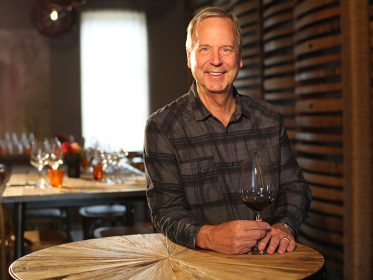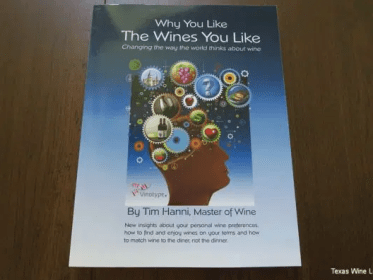Tim Hanni MW: «We are a very myopic and stubborn industry, and I hope to change this»
Author: Veronika Busel
Wine Travel Awards recently had the privilege of speaking with Tim Hanni, a renowned expert in the wine world and one of its longest-serving Masters of Wine. His advice and programs are used by sommeliers at leading American establishments, including the Ritz Carlton, Marriott, Hyatt, and many others. Known for both constructing logical frameworks and challenging prevailing norms, Hanni has rightly earned the moniker “Wine Antisnob”. Throughout our conversation, he remained true to his reputation. Continue reading to shift your perspective.
First and foremost, let me thank you for participating as a judge in our Wine Travel Awards 2023-2024 – we understand how challenging this must have been given your busy schedule.
Tim Hanni: Yes, I admit, I lead a very active life, so at times there were overlaps that required extra effort. But it was an interesting new experience for me!
Really? With your experience, it seems like nothing could surprise you anymore! Tim, it’s impressive that you achieved your Master of Wine status back in 1990, becoming one of the first two Americans to pass this notoriously challenging exam. Given the difficulty of the MW exams, what advice would you offer to those preparing for this path, especially considering the unique experiences and challenges you faced?
Tim Hanni: In 1990, Joel Butler and I passed the examination to earn the credential of Master of Wine. Generally considered a very challenging examination, it was especially hard for me due to learning disabilities that were not diagnosed until many years later. After epically failing the examination in 1989 I signed up for a writing seminar and ended up going to the wrong one for three days! It was “Critical Thinking and Disruptive Innovation for Electrical Engineers,” and it changed my life!
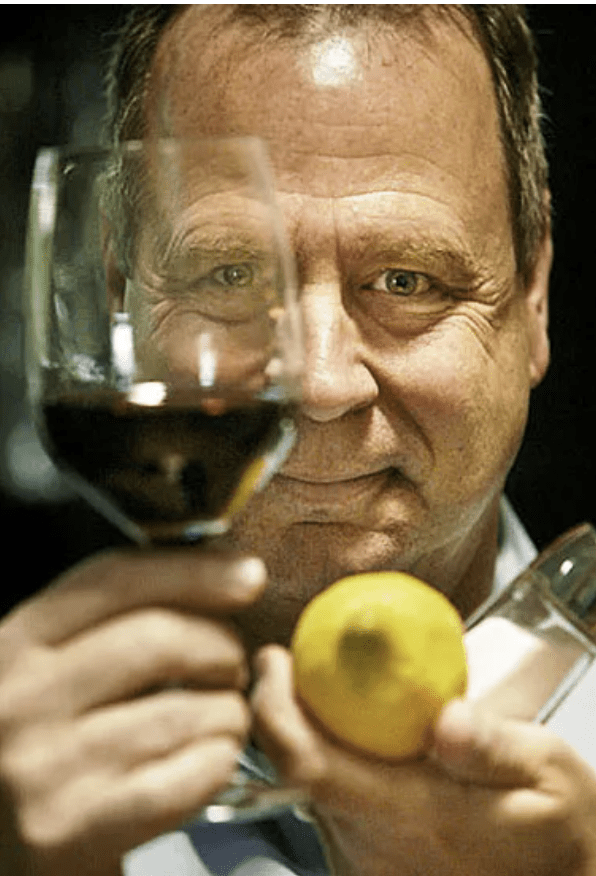
Most importantly, I learned an outlining method called mind-mapping, and for the first time in my life, I could organize my thoughts and write coherent papers! Secondly, the critical thinking exercises were perfect for identifying valid points of view of topics and then structuring papers to show a command of the information from multiple points of view. I vigorously recommend that every aspiring Master of Wine learn about critical thinking.
Overall, as a consultant, you bring a broad spectrum of knowledge and expertise. Could you share some of the most interesting client projects you’ve worked on recently? Additionally, with your extensive experience in creating wine lists and pairings, what have been some of your most rewarding or demanding experiences in that area?
Tim Hanni: My work with wine restaurant and hotel programs focused on solving business operational problems and increasing profits while improving guest satisfaction metrics. Called the Progressive Wine List System, the focus was on improving operational efficiencies by having a sensible matrix of products, reducing the time spent on staff training, building server confidence, lowering and managing wine inventories, and more. Each program was custom-tailored to the needs of the restaurants or hotels. At one point I was working with everyone from Ritz Carlton, Marriott, Hyatt, Ruth’s Chris, Olive Garden, P.F. Chang’s, and many more companies, In 2010 the Wall Street Journal reported that well over 30% of white tablecloth restaurants in the US were employing the Progressive Wine List system. On the wine “pairing” front, my position is simple – “match the wine to the diner, not the dinner.”
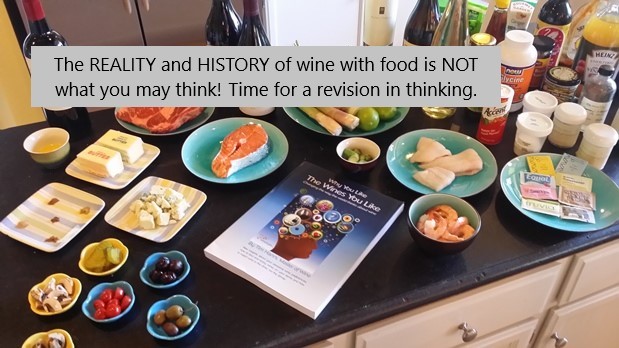
On the 10th anniversary of your book Why You Like the Wines You Like, which was devoted to changing perspectives on wine, promoting diversity, and challenging conventional standards (and for which you earned the title of ‘Wine Antisnob’ from the Wall Street Journal), could you share your thoughts on how wine appreciation has evolved? What changes do you see in how people value and enjoy wine today?
Tim Hanni: I am very curious about word origins and meanings, and the word appreciation can be defined in many ways. It generally means enjoying something, but it can also be used to prize or cherish certain wines, or even be applied when a wine “appreciates” in value. In terms of wine enjoyments made great strides to become more diverse and inclusive, but it is constrained by certain entrenched ideas, promoted by wine experts and educators, of what makes wine “good” or “bad.”
I’ve long advocated for a more individualized approach to wine enjoyment, one that acknowledges the vast range of individual sensory capabilities, sensitivities, and personal preferences that people have. I have coined the term Perceptual Individualism to convey that we all live in our own unique perceptual world. Too often, wine appreciation is tied to notions of prestige, tradition, or supposedly “objective” quality standards. Perception, including taste and smell, is entirely subjective. Period. While there’s been a positive shift toward experimentation and open-mindedness, there remains a tendency to place wines into rigid categories of quality that don’t necessarily reflect the personal experiences of consumers. Then throw in wine and food pairing, and it is almost as if the consumer doesn’t exist! Genuine wine appreciation should be about finding what you enjoy, not necessarily what someone tells you should like, unless that is what the individual requests.
The wine industry as a whole and wine education programs would benefit greatly by learning to understand the variables of personal perception and preferences and revise a great deal of our thinking about not only how to understand wine quality in a new light but also critically rethink what we are doing in the areas of wine education and pairing wine with food. This is where I feel we are constrained by certain entrenched ideas promoted by wine experts and educators, as I mentioned earlier. I am working on something called The Perception Project to forward a better understanding of Perceptual Individualism and how it can be installed in all wine education programs and utilized in wine marketing and communications.
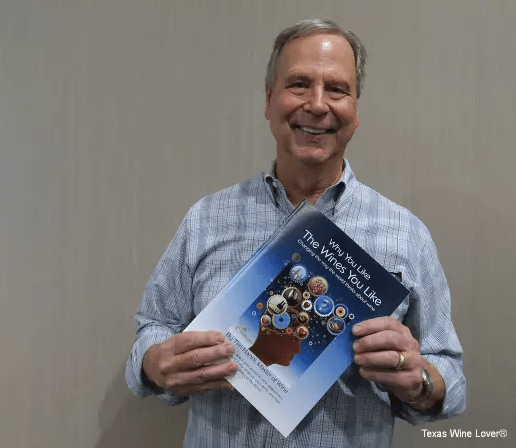
How independent do you believe most modern wine experts and enthusiasts are in their preferences?
Tim Hanni: We’re seeing a growing movement toward more independent preferences, especially among younger generations like Millennials and Gen Z. Unfortunately, this independence is largely aimed at adult beverage options other than wine. These consumers tend to reject the old hierarchical approach to wine in favor of personal exploration and enjoyment on their terms. However, there will always be a significant portion of wine experts and enthusiasts whose preferences are shaped by traditional views and the influence of established wine authorities. While some experts are relatively independent, we cannot help but be influenced by conventional wisdom about what regions, styles, or producers are “the best” without fully embracing the variability in individual perception.
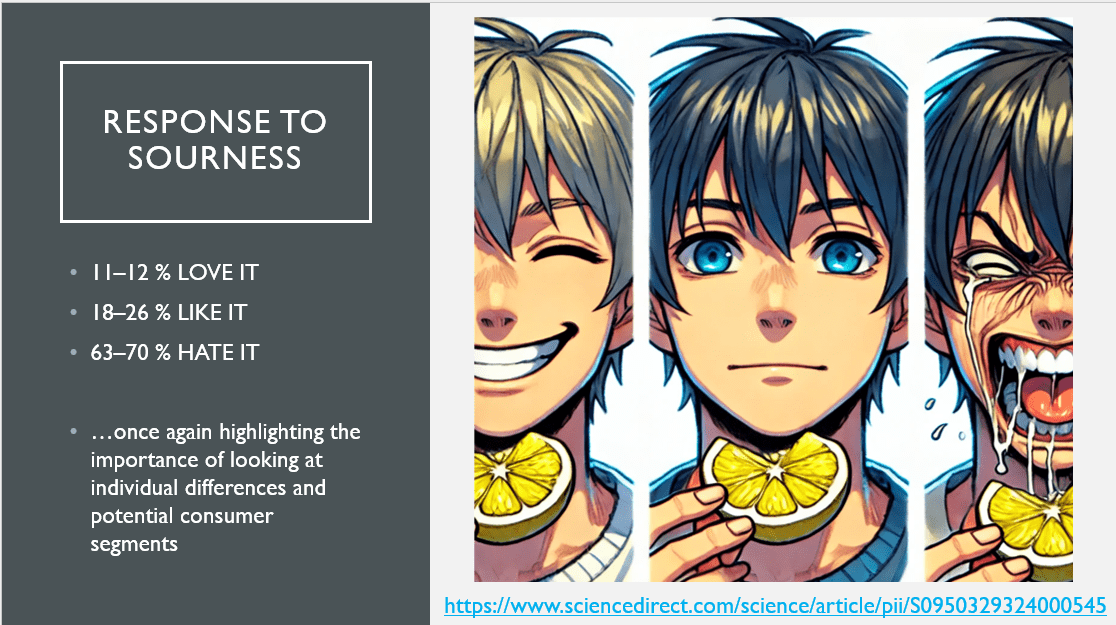
Following up on that, to what extent do you think authoritative opinions still shape the preferences of wine enthusiasts and experts?
Tim Hanni: It is inevitable that authoritative opinions will, and should, always heavily influence many wine enthusiasts and experts. Critics, influencers, wine writers, and certain institutions will always have a significant influence on shaping perceptions of wine quality. For me, the question becomes, how do we connect consumers to the influencers and authorities who best match an individual’s preferences and expectations? Every system of communication, descriptive language, valuation, and rating has value but there is no single universal system. Whether the expert influencer employs 100-point ratings to stars, prosaic or poetic storytelling, or the detailed metaphorical world of fruits, herbs, spices, and vegetables, we have to accept that inevitably, they are all highly subjective opinions that represent different things to different people.
Influencers and educators on social media and independent platforms have begun to democratize wine knowledge more and more, and the media, social or otherwise, still has key figures whose opinions can greatly sway public perception. Still, with our current wine education programs and “groupthink” of what constitutes good or bad wine, this can lead to a narrow focus on certain wines that conform to these accepted standards, often sidelining wines that are equally valid but cater to different perceptual standards. The other part of the authoritative opinion equation is that while the vast majority of consumers do not follow the ratings or understand the descriptions, the wineries, distributors, salespeople, and especially wine buyers will be influenced, resulting in determining which wines will be found on the shelves, wine lists, and online.
Research that has been conducted by my means and many other individuals and organizations has shown that a large percentage, even a majority, of people distrust authoritative opinions. I am convinced that this is due to a lack of means to place the consumer first, create more trust, and guide people to the authorities and products that are the best match for them as individuals.
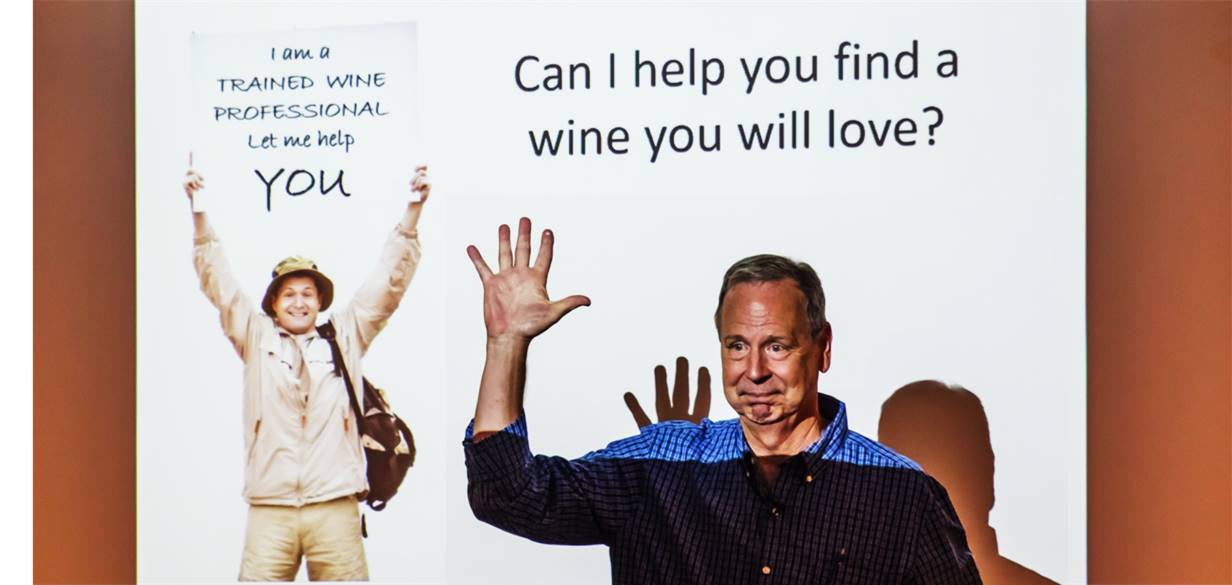
Furthermore, who do you consider the key figures or institutions shaping wine preferences today, and how do you see their role evolving in response to changing consumer expectations?
Tim Hanni: In terms of shaping preferences globally, there are many figures and institutions that hold significant sway in the market. The list is too long for me to call out, but most people reading this article know about the publications, podcasters, influencers, and critics. And their impact continues to hold sway, especially among older generations. However, in various regions and via various platforms, many new voices are emerging. However, I see a promising future where individual consumers, empowered by their own experiences and preferences, increasingly shape the wine market, moving beyond the influence of any one authority or institution. I am very pleased that the WSET has been adopting my principles of focusing on wine and food interactions and adding more emphasis on Perceptual Individualism. I hope that the concept becomes understood and utilized to end pointless arguments over whose opinion is more or less valid and which valuation system is better or best. Instead of “shaping” wine preferences, we need to focus on a better understanding of the amazing diversity of consumer expectations and preferences and then getting the right product into the hands of the right people. This will give the key figures and institutions larger audiences if they can successfully connect and build trust that is lacking today.
Last year, at the Institute of MW symposium, the concept of ‘A Taste for the Future’ explored potential future flavors and trends in wine. This ties into a topic you’ve written about extensively – changing how the world approaches and thinks about wine. In your view, how influential are these discussions, and how critical is it for the industry to consider consumer preferences and perceptions in shaping the future of wine?
Tim Hanni: My research on consumer preferences, behaviors, and attitudes has shown stability when wines are grouped by primary style categories based on characteristics of sweetness (or lack thereof), intensity, bitterness, astringency, acidity, and alcohol. Consumer values and fashion dictate many of the changes in sustainability, packaging, regions, varieties, and wine-related buzzwords. Unfortunately, wine education and promotion is far too focused on the product, not the consumer. We are a very myopic and stubborn industry, and I hope to change this.
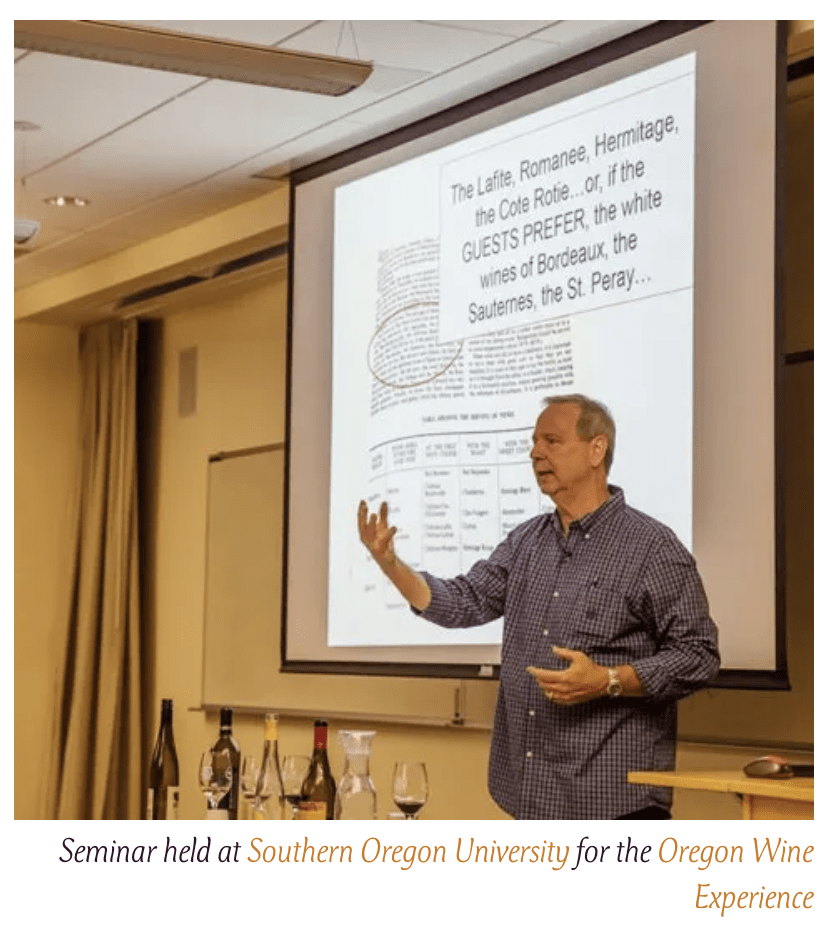
The wine and food pairing principles you developed are included in the Wine & Spirits Education Trust’s Advanced Diploma program. Could you share more about your approach to wine and food interactions and how these principles are being implemented at WSET?
Tim Hanni: This is an area where the Critical thinking and disruptive Innovation seminar I attended while studying for the MW exam hit me the hardest! For the past 35 years, after retiring as a ‘Wine and Food Guru’ (according to Jancis Robinson), I focused on understanding the interactions between wine and food rather than the pairing, matching, or whatever of the current paradigm. Wine and food interactions create flavor modulations (increasing or decreasing the intensity of sensations); whether you like the change is up to the individual, and Perceptual individualism dictates the intensity of the interactions. On top of that, there is so much misrepresentation of history, traditions, and downright pseudoscience that the educational materials need serious revisions. I have been working on this with the WSET in bits and pieces. They have been using my principles for almost 15 years, but they are not implementing the materials in a cohesive or comprehensive manner. Yet.
What is your perspective on current trends in wine consumption, both in the U.S. and globally? How do you see these trends impacting the industry, and what changes do you believe are necessary to address the challenges ahead?
Tim Hanni: Everyone in the wine industry needs to examine the global picture more closely. Consumption has been trending down in the US, but elsewhere in the world, things are very bleak. Producers in the US tell me, “That’s not our problem,” without considering how this will affect US winery prices and sales! Consumption in China is down 65% over the past five years and this was a major market for France, Australia, South America, and many more countries. Wine consumption in France, Italy, and Spain is a disaster, down over 80% and still dropping in the past 70 years. The number of wineries and wine products is proliferating like never before, and we are facing another assault from the anti-alcohol forces. Where will these wine go? The US is the number one market, and heavily discounted and even government-subsidized international products are soon coming in massive quantities. Yet the wine industry “cheerleaders” are seemingly in denial and urging everyone to stay calm and stay the course. It is time for systemic change in the industry and time to do some house cleaning with how we operate, especially in consumer understanding such as trust, engagement, communications, and education.
We can do it, but it will mean giving up a lot of old baggage to get there.
Stay connected with Wine Travel Awards:
- Facebook: https://www.facebook.com/WineTravelAwards/
- Instagram: https://www.instagram.com/winetravelawards
- LinkedIn: https://www.linkedin.com/company/winetravelawards/
Photo: wap.lookvin.com, vitisphere.com
